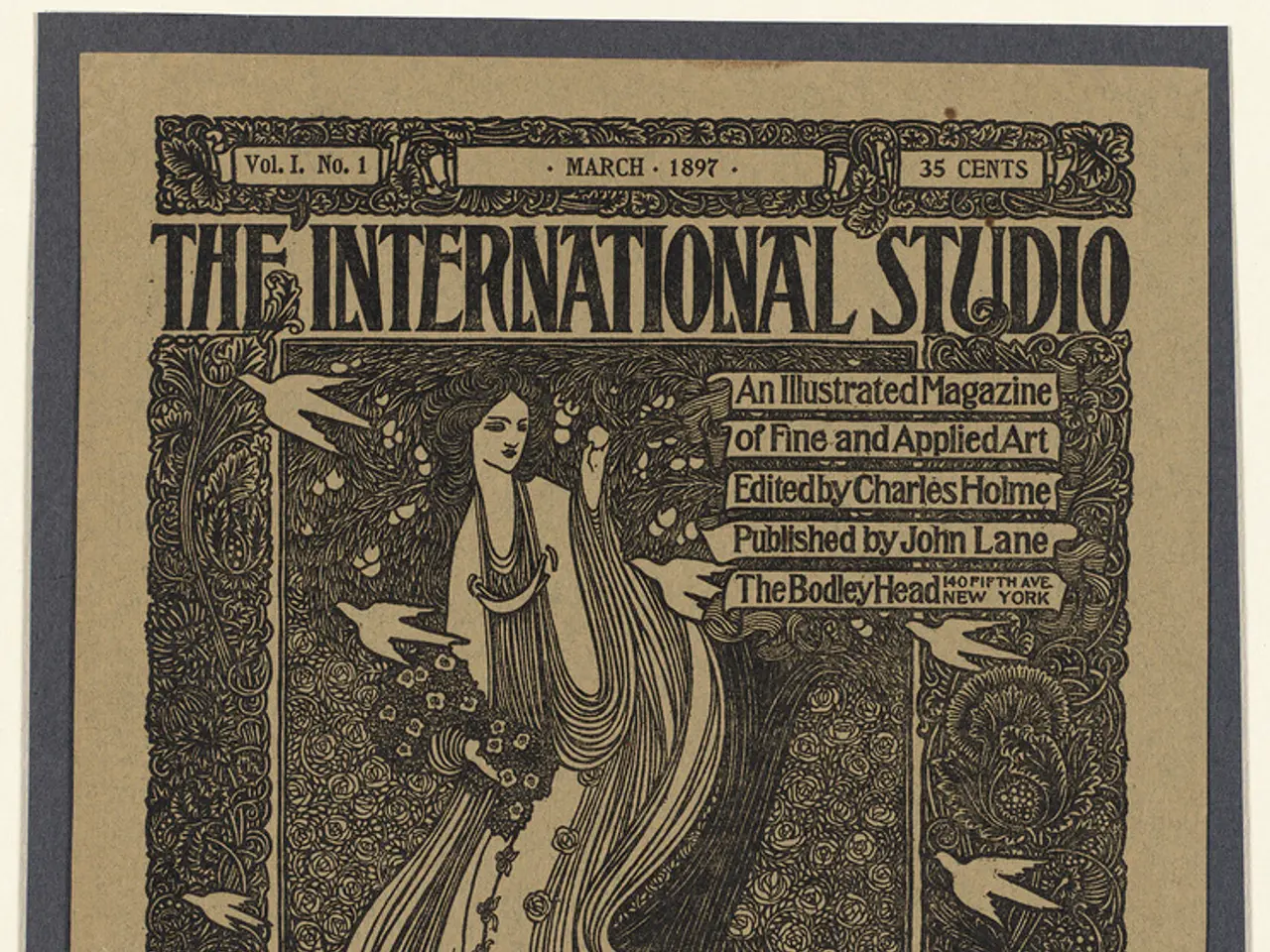Akiko Yosano: Fervent Poet and Forward-Thinking Journalist
Yosano Akiko, a renowned Japanese poet born in 1878, left an indelible mark on Japanese society during the Taisho era (1912–1926). Her progressive views on gender equality, work-life balance, and lifelong learning were far ahead of her time.
Akiko's literary work actively engaged with social issues, such as improving labor conditions for women, protecting motherhood, and envisioning a society where work hours were shortened to allow for diverse leisure activities. Her poem "Onna yori / chie ari to iu / otokotachi / kono tatakai o / yamenu kashikosa," written in July 1918, expressed her thoughts on war, while "A Woman in Love," published in her collection "Tangled Hair" in 1901, delved into the rarely addressed topic of love for a young woman in a traditional Japanese society.
Akiko's poems, including "Onna yori / chie ari to iu / otokotachi / kono tatakai o / yamenu kashikosa," were later included in her collection The Firebird. Her works, which challenged traditional values, sparked important debates about the roles of women and social reforms in modernizing Japan.
Apart from her literary activities, Akiko wrote for newspapers and magazines on topics like education and gender equality. She was a voice of reason during turbulent times, expressing her wish for peace in an article titled "Sensō ni tsuite no kōsatsu" written for a magazine in April 1918.
During the Russo-Japanese War, Akiko wrote and published the poem "Thou Shalt Not Die," expressing concern for her soldier brother. This poem, like many of her works, demonstrated her deep empathy and compassion.
In addition to her literary influence, Akiko was a prominent public figure and influencer who extended her impact through journalism and popular media. She contributed to newspapers and magazines during the heyday of Japanese print media and was involved in cultural activities connected to the rise of urbanization and consumer society. For example, she served as an advisor to the Takashimaya Department Store and helped organize long-running cultural events that blended commercial and artistic sensibilities.
Her work challenged contemporary activists and commentators such as Hiratsuka Raichō and Yamakawa Kikue, illustrating that her ideas sparked important debates about the roles of women and social reforms in modernizing Japan. Though her views were sometimes misunderstood or considered radical by contemporaries, her contributions laid groundwork for later developments in Japanese feminism and social thought.
In summary, Yosano Akiko's impact during the Taisho era included: - Introducing progressive social critiques on gender and labor. - Expanding the role of women’s voices in public debate and literature. - Influencing the evolving urban and consumer culture through media and cultural engagements. - Stimulating social reform discussions in an era of rapid modernization and change.
Therefore, her literary work and social commentary played a vital role in shaping intellectual and cultural discourse in Taisho Japan, leaving a lasting legacy on Japanese society.
[References] [1] "Yosano Akiko." Encyclopedia Britannica, Encyclopedia Britannica, Inc., 14 Mar. 2019, www.britannica.com/biography/Yosano-Akiko. [3] "Yosano Akiko." Japan Experience, Japan Experience, 15 Mar. 2023, www.japanexperience.com/en/knowledge/yosano-akiko/.
- Yosano Akiko, a celebrated poet born in 1878, was a trailblazer in Japanese society during the Taisho era, influencing various aspects such as gender equality, work-life balance, and lifelong learning.
- Akiko's literary work often tackled social issues, including women's labor rights, motherhood protection, and societal reforms for a more balanced life.
- One of her poems, "Onna yori / chie ari to iu / otokotachi / kono tatakai o / yamenu kashikosa," voiced her concerns about war during the Taisho era.
- Her poems, like "A Woman in Love" and "Onna yori / chie ari to iu / otokotachi / kono tatakai o / yamenu kashikosa," were compiled in The Firebird, addressing traditional societal norms and challenging the status quo.
- Akiko's works sparked crucial debates about women's roles and social reforms during Japan's modernization, even though her views were sometimes perceived as radical.
- In addition to poetry, Akiko wrote articles on education and gender equality for newspapers and magazines during the peak of Japanese print media.
- She advocated for peace in her article "Sensō ni tsuite no kōsatsu" in 1918, expressing her hopes for a less violent world.
- During the Russo-Japanese War, Akiko wrote and published the poem "Thou Shalt Not Die," conveying her care and concern for her soldier brother.
- As a public figure, Akiko extended her influence through journalism and popular media, engaging in cultural activities alongside the rise of urbanization and consumer society.
- She also worked with commercial entities, such as the Takashimaya Department Store, and helped organize long-running cultural events that bridged commerce and artistry.
- Akiko's impact resonated with contemporary activists like Hiratsuka Raichō and Yamakawa Kikue, fueling discussions about gender roles and social reforms.
- Her contributions paved the way for later developments in Japanese feminism and social thought, leaving an enduring impact on Japan's intellectual and cultural landscape.
- Akiko's literary work and social commentary remain significant in shaping the discourse of Taisho-era Japan, shaping its legacy on Japanese society.
- For anyone interested in Japanese history and culture, exploring Akiko's works offers valuable insights into the Taisho era's intellectual and societal shifts.
- Books such as "Yosano Akiko" by Encyclopedia Britannica and "Yosano Akiko" by Japan Experience provide in-depth information about her life, works, and influence.
- As society continues to evolve, learning from figures like Yosano Akiko is essential, in the realms of gender equality, work-life balance, and lifelong learning, which remain relevant in today's world.
- By understanding Akiko's impact during the Taisho era, we can appreciate the role of literary works and social commentary in shaping our understanding of politics, culture, and women's health, influencing a wide range of lifestyle and fashion, from personal growth to entertainment, and fostering ongoing discussions about care for family health, mental health, skin care, nutrition, aging, and women's health, among other important topics.




